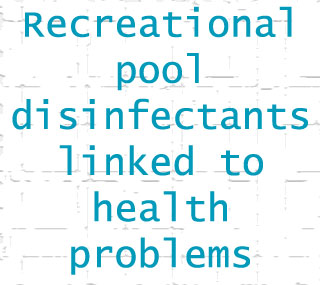
Since pools are continuously disclosed to disinfectants, cases of disinfection in pools seem to be varied form disinfection of drinking water. The presence of significant amounts of nitrogen in such consumer products that boost chances of developing nitrogenous disinfection byproducts was revealed. Incorporation of the byproducts and disinfectants apparently results in chemically altered and converted highly toxic agents.
Michael Plewa, U of I professor of genetics shared, “All sources of water possess organic matter that comes from decaying leaves, microbes and other dead life forms. In addition to organic matter and disinfectants, pool waters contain sweat, hair, skin, urine, and consumer products such as cosmetics and sunscreens from swimmers.”
Gene mutation, birth defects, elevation in aging process and rise in respiratory ailments are the possible outcomes of such disinfection byproducts. It was mentioned that long-term exposures to these byproducts can lead to cancer. For appraising the negative outcome of water from recreational pools on health, the investigators scrutinized collections from public pools and a control sample of tap water.
Plewa enlightened, “Care should be taken in selecting disinfectants to treat recreational pool water. The data suggest that brominating agents should be avoided as disinfectants of recreational pool water. The best method to treat pool waters is a combination of UV treatment with chlorine as compared to chlorination alone.”
The water samples were compared by employing a standardized mammalian cell genotoxicity analysis. Genomic damage in mammalian cells was monitored by the utilized sensitive DNA technology. In the course of inspection, the researchers examined the level of each nucleus within each cell. Various disinfection methods and environmental conditions were also compared. The outcome was that all disinfected pool samples supposedly indicated more genomic DNA damage than the source tap water.
It has been suggested that before disinfection, organic carbon can be excluded when pool water is being recycled. Also the genotoxicity of the pool water may be declined by taking a shower before entering and not urinating in the pool. Such simple guidelines are anticipated to significantly decrease the effects of toxic disinfection byproducts.
The research was published in Environmental Science & Technology.
